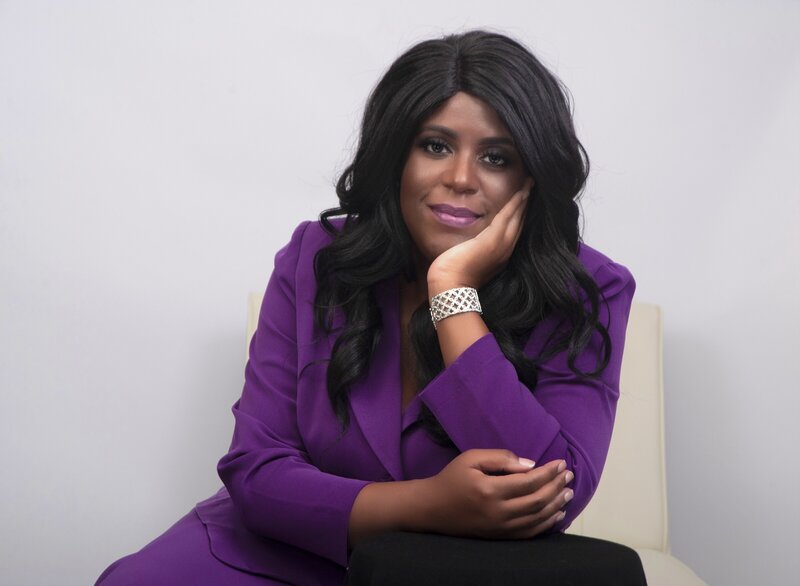December 20, 2023
Have you ever noticed how your mind tends to jump to the worst-case scenario in certain situations? It’s a fascinating concept to explore, and in this blog, we’ll delve into the power of the mind and why we’re inclined to think negatively.
Our thought patterns have a significant impact on our emotions, behaviors, and overall well-being. When faced with uncertainty or potential danger, our brain’s survival instinct kicks in, causing us to focus on potential threats and worst-case outcomes. This negativity bias served our ancestors well in avoiding danger and staying alive, but in today’s relatively safe world, it can often lead to unnecessary stress and anxiety.
Understanding why our minds think the worst can help us navigate these negative thought patterns more effectively. By becoming aware of our tendency to focus on the negative, we can learn to reframe situations and cultivate a more positive mindset.
So, why does our mind automatically jump to the worst-case scenario? Is it rooted in our evolutionary past, or is it a product of our modern-day society? Join us as we explore these questions and gain valuable insights into the power of our mind and how it shapes our perception of the world.
Related blog: Catastrophic Thinking: How to Recognize It & Why It Happens
Understanding the negativity bias and worst-case scenario
Our minds have a remarkable ability to jump to the worst-case scenario in certain situations. This tendency can be attributed to what psychologists call the “negativity bias.” This cognitive bias refers to our brain’s inclination to give more weight to negative experiences and thoughts compared to positive ones. It is a survival mechanism that evolved to help our ancestors navigate a dangerous world filled with predators and environmental threats.
The negativity bias is deeply ingrained in our psychology and affects the way we perceive and interpret information. Research suggests that negative experiences have a more significant impact on our emotions and memory than positive ones. This bias influences our decision-making process, leading us to focus on potential threats and worst-case outcomes.
The negativity bias is particularly evident when we face uncertainty or potential danger. Our brain’s survival instinct kicks in, and we become hyper-vigilant, scanning our environment for potential threats. This constant scanning for danger can be exhausting and often leads to unnecessary stress and anxiety in our modern-day lives.
The negativity bias served our ancestors well in avoiding danger and staying alive. In a world filled with predators and limited resources, being alert to potential threats was essential for survival. Those who were more attuned to negative stimuli were more likely to take precautionary measures and, in turn, pass on their genes.


This evolutionary advantage explains why our minds are wired to pay more attention to negative information. It is a deeply ingrained adaptive mechanism that helped our species survive in a hostile environment. However, in today’s relatively safe world, this negativity bias can sometimes be more of a hindrance than a help.
The impact of the negativity bias on our thoughts and emotions
The negativity bias can have a profound impact on our thoughts, emotions, and overall well-being. It influences the way we interpret and remember events, often leading us to focus on the negative aspects while ignoring the positive ones. This cognitive bias can distort our perception of reality, making it difficult to see the full picture and appreciate the positive aspects of our lives.
When we constantly think in worst-case scenarios, it can lead to heightened anxiety, stress, and even depression. Our minds become consumed with negative thoughts, which can affect our ability to make rational decisions and find joy in the present moment. Over time, this negative thinking pattern can become deeply ingrained, making it challenging to break free from the cycle of negativity.
Cognitive distortions and their role in negative thinking
Cognitive distortions are patterns of thinking that contribute to negative thoughts and emotions. These distortions are often automatic and unconscious, making it challenging to recognize and challenge them. They reinforce the negativity bias and can keep us trapped in a cycle of negative thinking.
One common cognitive distortion is “catastrophizing,” or catastrophic thinking, where we magnify the importance or likelihood of negative events. For example, if we receive a critical comment at work, we may start to believe that we will be fired or that our career is over. This distortion leads us to jump to the worst-case scenario, causing unnecessary stress and anxiety.
Another cognitive distortion is “black-and-white thinking,” where we see things as either all good or all bad, with no middle ground. This type of thinking can limit our ability to see alternative perspectives and find solutions to problems. It reinforces the negativity bias by polarizing our thoughts and emotions.
The role of fear and anxiety in our inclination towards worst-case scenarios
Fear and anxiety play a significant role in our inclination towards worst-case scenarios. When we experience fear, our brain activates the “fight-or-flight” response, preparing our body to respond to a perceived threat. This response is essential for our survival, but it can also trigger irrational thoughts and amplify our tendency to think negatively.
Anxiety, on the other hand, is a more generalized state of fear. It is often characterized by excessive worrying and a heightened sense of uncertainty. Anxiety can fuel our negative thinking patterns, making it difficult to see things objectively and find realistic solutions to problems.
Understanding the role of fear and anxiety in our inclination towards worst-case scenarios can help us develop strategies to manage them effectively. By recognizing when our fears are irrational and challenging negative thoughts, we can gain control over our minds and cultivate a more positive outlook.
Strategies for overcoming negative thinking patterns
Overcoming negative thinking patterns requires conscious effort and practice. Here are some strategies that can help us reframe our thoughts and cultivate a more positive mindset:
1. Identify and challenge negative thoughts: Pay attention to your thoughts and identify when they lean towards the worst-case scenario. Challenge these thoughts by asking yourself if they are based on evidence or if there are alternative explanations.
2. Practice gratitude: Cultivate a habit of focusing on the positive aspects of your life. Take time each day to reflect on things you are grateful for. This practice can help shift your focus from negative to positive.
3. Cultivate self-compassion: Treat yourself with kindness and understanding. Recognize that negative thoughts are a natural part of being human and that everyone experiences them to some extent. Be gentle with yourself and practice self-care.
4. Engage in positive self-talk: Replace negative self-talk with positive affirmations. Remind yourself of your strengths, accomplishments, and the progress you have made. Use empowering language to encourage yourself.
5. Practice mindfulness: Mindfulness involves being fully present in the moment and observing your thoughts without judgment. It can help break the cycle of negative thinking by allowing you to distance yourself from your thoughts and emotions.
The benefits of positive thinking
Positive thinking has numerous benefits for our overall well-being. It can improve our mental and physical health, enhance our relationships, and increase our resilience in the face of adversity. When we cultivate a positive mindset, we are more likely to approach challenges with optimism and find creative solutions.
Positive thinking also enhances our emotional well-being by reducing stress and anxiety. It improves our self-esteem and self-confidence, allowing us to take on new opportunities and achieve our goals. Additionally, positive thinking fosters a sense of gratitude and appreciation for the present moment, leading to greater happiness and life satisfaction.
Mindfulness and its role in reframing our thoughts
Mindfulness is a powerful tool for reframing our thoughts and cultivating a positive mindset. By practicing mindfulness, we can become aware of our negative thought patterns and choose to respond to them in a more constructive way. Mindfulness allows us to observe our thoughts without judgment, creating space for more positive and realistic thinking.
Through mindfulness practices such as meditation and breathing exercises, we can train our minds to focus on the present moment and let go of negative thoughts. This practice helps us develop a greater sense of self-awareness and allows us to consciously choose our thoughts and responses.
Conclusion on harnessing the power of the mind for positive thinking
The power of the mind is undeniable when it comes to shaping our perception of the world. Our inclination towards worst-case scenarios is rooted in our evolutionary past, but it can be overcome through awareness and conscious effort. By understanding the negativity bias, challenging negative thoughts, and cultivating a positive mindset through practices like gratitude and mindfulness, we can harness the power of our minds for positive thinking.
Remember, it takes time and practice to rewire our thought patterns, but the benefits are well worth the effort. Embrace the power of your mind and choose to focus on the positive aspects of life. By doing so, you can create a more fulfilling and joyful existence.


Twanna Carter, PhD, ICF/PCC, Career Coach for Black Women Leaders | 20+ Years of Experience Helping Women Achieve Their Career Goals | Leadership | Personal Development | Business Strategy | Career Development | Lifestyle Balance | Digital Business Card | Free 30-Minute Career Solution Call
Curated Reads: Essential Books to Add to Your Personal Library
- Melaninated Magic: 180 Affirmations to Nurture Your Soul and Unleash Your Black Girl Joy by Twanna Carter, PhD
- I’m Not Yelling: A Black Woman’s Guide to Navigating the Workplace (Successful Black Business Women), Elizabeth Leiba
- Stop Overthinking: 23 Techniques to Relieve Stress, Stop Negative Spirals, Declutter Your Mind, and Focus on the Present (The Path to Calm) by Nick Trenton
- Influence: The Psychology of Persuasion by Robert B. Cialdini
- How to Win Friends and Influence People by Dale Carnegie
- High-Functioning Anxiety: A 5-Step Guide to Calming the Inner Panic and Thriving by Dr. Lalitaa Suglani
- Dare to Lead by Brene Brown
- The Memo, by Minda Harts
- Atomic Habits: An Easy & Proven Way to Build Good Habits & Break Bad Ones, by James Clear
Read next…
- 7 Signs You’re Still Leading From Survival ModeIf you’re a high-achieving Black woman executive, you’ve probably mastered the art of the juggle, leading teams, making tough calls, and holding… Read more: 7 Signs You’re Still Leading From Survival Mode
- What If Your Career Wasn’t Meant to Be This Hard?7 Thought-Shifting Prompts to Help You Discover the Work You’re Meant For You know that quiet ache that shows up on Sunday nights?… Read more: What If Your Career Wasn’t Meant to Be This Hard?
- Why Boundaries Are the Richest Thing You Can Build This YearWealth Isn’t Just About Your Bank Account When you hear the word “rich,” what pops into your mind? Diamond necklaces? Stock portfolios? That… Read more: Why Boundaries Are the Richest Thing You Can Build This Year
- Are You Really Being Too Much, Or Just Being Seen?Have you ever felt the need to shrink yourself at work or in social spaces, just to avoid being labeled as “being too… Read more: Are You Really Being Too Much, Or Just Being Seen?
- Career Shift? These 9 Transferable Skills Resources Are Game-ChangersAs an executive-level professional aiming for a strategic career pivot, knowing your transferable skills isn’t just beneficial, it’s essential. Transferable skills are abilities… Read more: Career Shift? These 9 Transferable Skills Resources Are Game-Changers
- You Need a Hustle Detox. Not Another Planner.Are you tired of buying yet another planner, hoping THIS one will finally fix your chaos? You know the drill: glossy cover, color-coded… Read more: You Need a Hustle Detox. Not Another Planner.
- The 5 Core Values Every Black Woman Executive Should Define Before Her Next Career MoveHave you ever felt overwhelmed by opportunities, yet unsure which path truly fits your ambitions, identity, and well-being? If you’re a Black woman… Read more: The 5 Core Values Every Black Woman Executive Should Define Before Her Next Career Move
- How to Protect Yourself from Being Managed Out – The Ultimate Survival Playbook for Black Women ExecutivesYou walk into the Monday morning meeting, coffee in hand, feeling ready to tackle the week. But something’s off. The room feels… Read more: How to Protect Yourself from Being Managed Out – The Ultimate Survival Playbook for Black Women Executives
- What Your Inner Critic Is Really Costing You. And How to Take Back ControlHave you ever replayed a single mistake in your mind for days, doubted your abilities before a big meeting, or hesitated to ask… Read more: What Your Inner Critic Is Really Costing You. And How to Take Back Control
- Why Black Women Execs Doubt Their Voice (and How to Reclaim Your Power)And it starts now. If you’re ready to reclaim your voice, you don’t have to do it alone. Schedule your V.I.P. Roadmap Session… Read more: Why Black Women Execs Doubt Their Voice (and How to Reclaim Your Power)
- The Trauma Behind the Mask: Why I Walked Away from My Six-Figure JobI didn’t leave my job because I was unqualified. I didn’t leave because I couldn’t handle the work. They began managing me out.… Read more: The Trauma Behind the Mask: Why I Walked Away from My Six-Figure Job
- Stop Overgiving. Because It’s a Silent Career Killer for High-Achieving WomenYou’re smart. Capable. The one everyone counts on. From boardrooms to family rooms, you handle it all with grace. But beneath the surface,… Read more: Stop Overgiving. Because It’s a Silent Career Killer for High-Achieving Women






















+ show Comments
- Hide Comments
add a comment